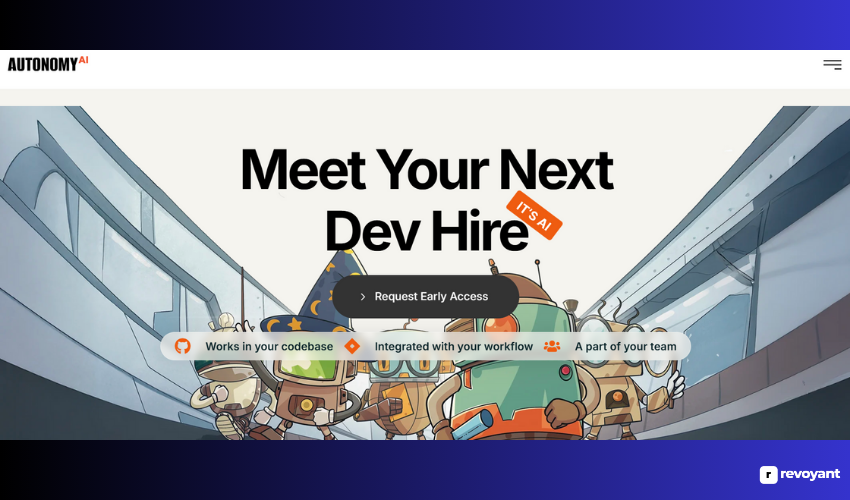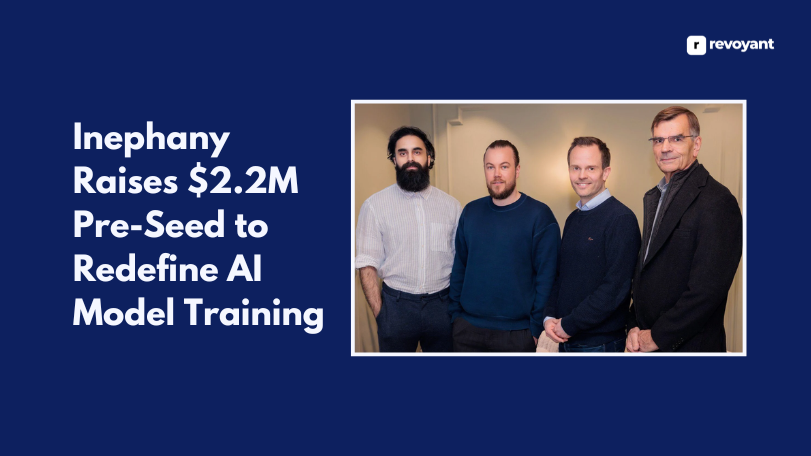AutonomyAI, a fast-emerging startup in the AI development space, has secured $4 million in pre-seed funding to take its cutting-edge AI engine to market. The company is focused on solving one of the most time-consuming challenges in enterprise software: building front-end components quickly, consistently, and at scale.
Backed by seasoned investors and co-founded by enterprise tech veterans, AutonomyAI is aiming to bring autonomy—not just assistance—to the development lifecycle.
Built by Engineers, for Engineers
AutonomyAI was founded by a trio of experienced technologists who have spent years building tools for complex engineering environments. CEO Adir Ben-Yehuda brings go-to-market and startup operations expertise, while Arik Faingold, best known as co-founder of cybersecurity leader Pentera, brings deep experience in enterprise systems. The technical backbone is led by Tammuz Dubnov, who serves as CTO.
What sets this founding team apart is their combined background in building scalable enterprise-grade systems and their clear understanding of the limitations of current code generation tools. Their experience led them to a key insight: Most AI coding assistants are still too reliant on developer prompts and oversight. The future of development lies in handing off full tasks—not just lines of code—to AI.
Powering It All: The Agentic Context Engine (ACE)
The core innovation behind AutonomyAI is the Agentic Context Engine, or ACE. Unlike tools that work as pair-programmers or autocomplete engines, ACE is designed to behave like a full-fledged team member.

Here’s how it works:
- Understands your environment: ACE can ingest and interpret your codebase, design files, and internal documentation.
- Generates production-grade code: It creates clean, functional front-end components that meet your internal standards.
- Minimizes developer oversight: Developers don’t need to hover over the process or rewrite what ACE delivers.
- Fetches context intelligently: Whether it’s referencing Figma files or using shared UI libraries, ACE works independently.
- Delivers enterprise reliability: Built with stability, testability, and integration in mind—right out of the box.
ACE doesn’t require constant prompting or micromanagement. It figures out what needs to be done and gets it done—very much like how you’d expect from a senior developer.
Backed by Leading Investors
The $4 million pre-seed round was led by Inbound Capital and participated in by strategic investors, including Gilad Shany of IoN Partners and Vikram Makhiija, a Senior Director at Google Cloud Security.
This is more than just a cash infusion—it’s a strong signal from respected figures in enterprise and cloud technology that AI-driven engineering automation is not just a novelty but a necessary step forward. The investment will allow AutonomyAI to expand its engineering team, onboard early design partners, and continue improving the ACE engine to meet the demands of large-scale development teams.
The team is also expected to focus on building integrations with major cloud platforms and design systems, further embedding ACE into the modern enterprise tech stack.
Why It Matters
Front-end development is often underestimated in terms of complexity. Developers spend a surprising amount of time converting designs into code, checking for component reuse, applying consistent theming, and manually testing UI interactions. These are valuable but repetitive tasks.
AutonomyAI aims to change that by offloading these processes to intelligent AI agents that can do them faster and at scale.
Here’s what this could mean for teams:
- Reduced dev cycles from weeks to days
- More time for engineers to focus on architecture and innovation
- Better consistency across large-scale products
- Fewer bugs introduced in UI code
- Improved developer satisfaction and lower burnout
This isn’t about replacing humans—it’s about freeing them to work on things that matter more.
A Timely Bet on AI Agents
The timing couldn’t be better. According to IDC, the AI tools and automation market is expected to hit $749 billion by 2028, and agent-based solutions are set to dominate a growing share of that spend.
GitHub Copilot, Replit’s Ghostwriter, and other assistants have shown what’s possible when AI helps developers. AutonomyAI is pushing the next frontier—moving from assistant to agent. While others still require prompts and supervision, ACE is being built to handle entire workflows with minimal input.
As enterprise dev teams grow and the pressure to deliver mounts, AI-native workflows like the ones AutonomyAI is creating could become the norm.
The Road Ahead
With the pre-seed funding secured, AutonomyAI plans to scale its development, grow the team, and bring ACE to more early adopters. Key areas of focus include:
- Hiring AI researchers, full-stack developers, and integration engineers
- Refining ACE’s ability to work across various front-end frameworks (React, Angular, etc.)
- Developing deeper integrations with design tools like Figma and enterprise platforms like GitHub and Vercel
- Working closely with select enterprises through early access programs
Their long-term vision? To build an engineering future where 50–70% of front-end tasks are completed by agents like ACE—with engineers stepping in only for final validation or creative direction.
Final Thoughts
AutonomyAI isn’t just chasing the trend—it’s helping define the future of engineering. By moving past the “co-pilot” model and building true autonomous agents, the startup is laying the groundwork for faster, smarter, and more scalable software teams.
If successful, it could mean a world where shipping new UI features becomes as simple as assigning a ticket—and letting the AI handle the rest.



